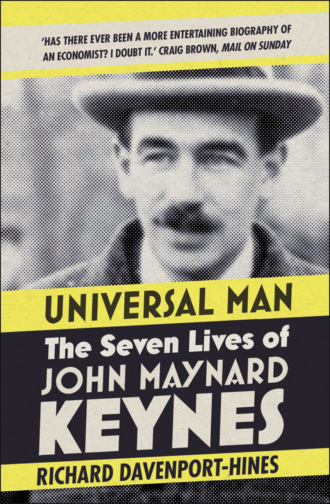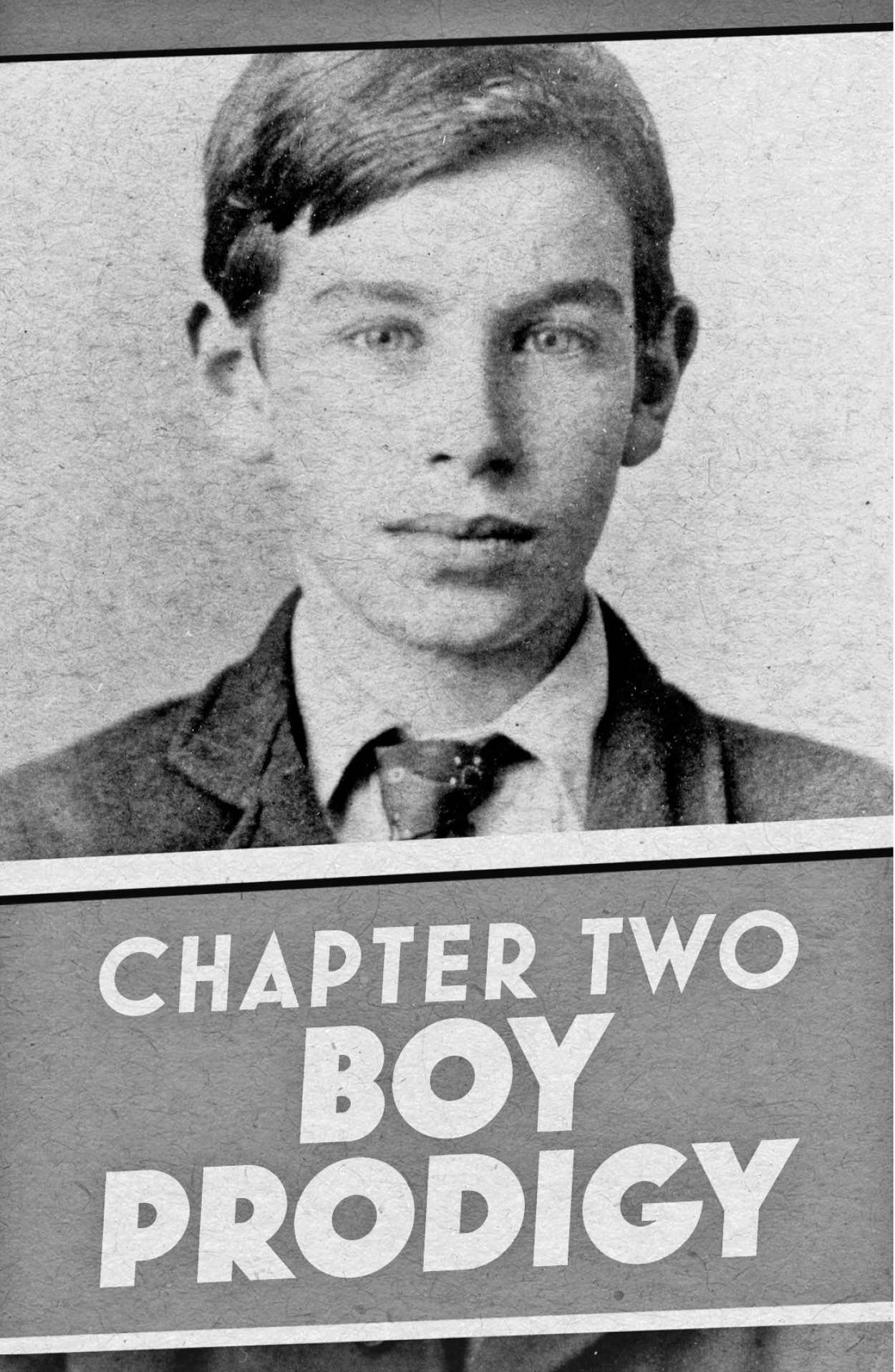
Полная версия
Universal Man: The Seven Lives of John Maynard Keynes
Intelligence cuts its way through conventions, beliefs, dogmas, traditions, sentiments, and social codes as an engineer hacks his way through forests and mountains, surmounts outcrops of nature, opening them up or slicing them away, forging ahead and imposing the shortest path. ‘The mind of Maynard Keynes was an extraordinary instrument, powerful, subtle, swift and penetrating,’ wrote Kingsley Martin, who worked with him for the last fifteen years of his life. ‘It was silly to try to argue with it; you could only change his conclusion by offering a new premise. He could – and did – do most things better than anyone else.’ Keynes reached rapid conclusions, and revised them just as swiftly. His reputed inconsistency ‘was nothing of the sort; it was merely the mental gymnastics proper to a King’s don’, judged Martin (referring to the Cambridge college of which Keynes was a member for over forty years). ‘He was willing to try any workable expedient.’11
Among those who only knew him socially, and had no working connection with him, Keynes was less intimidating. ‘Maynard was the cleverest man I have ever known,’ the art critic Clive Bell remembered. ‘His cleverness was of a kind, gay and whimsical and civilized, which made his conversation a joy to every intelligent person who knew him. In addition he had been blest with a deeply affectionate nature.’ Bell, in truth, was ambivalent about Keynes’s worldliness, but acknowledged that ‘he was magnificently generous: generous to his country, generous to his college … generous to his less fortunate friends’.12
Bell did not add that Keynes was the least envious of men. ‘Envy’ was a word that no one who knew Keynes associated with him. He was singular in lacking the faintest blotch of this trait. The thirty volumes of his collected works, the thousands of letters that he sent men and women, are devoid of envy, and of its attendant malice, discontent, grudges. Instead they show a man who was thankful to his core. Although Keynes’s interest in money was intense, there was never a moment’s covetousness: he wanted to share his gifts, and to spread abundance.
While writing this book my memory reverted to my first meeting with a Keynes. In June 1976, when I was working in the University of Cambridge on a doctoral dissertation on the history of English armaments companies between 1918 and 1936, I was taken up by a soppy old Swiss interior decorator named Konrad Kahl, who slunk about the purlieus of Cambridge colleges during May Week. He was missing either an eye or a leg (at this distance of time I forget which) and unable to drive. Offering me cooling drinks in compensation, he dragooned me into becoming his chauffeur, and hence his captive audience, for as we bowled along the byways of Cambridgeshire he pontificated in slow-moving monologues, full of periphrasis and coy hints and philosophical saws, about the sufferings of the artistic temperament, the nobility of Greek love of man for boy, the singularity of the Swiss soul, the harsh ingratitude of the world towards the elect who appreciate fine objects.
One afternoon Kahl took me to visit Sir Geoffrey Keynes, a spry, self-reliant and upright widower in his late eighties, who was the economist’s younger brother and a renowned bibliographer. He lived at Lammas House near Newmarket. This was a solid, comfortable country house, with soothing shadows in the summer heat, which (as I learnt while writing this book) had been bought for him unseen, by his shrewd and decisive mother, in 1949. Konrad Kahl spoke with ersatz self-abasement to Geoffrey Keynes, whom he presented with a hideously printed and garishly designed volume, with something of the jazziness of the Savoy Cocktail Book, which contained dispiriting quotations from Swiss professors about the joys of literature. Keynes received this gift with grave courtesy, and assured his benefactor that he knew exactly where he was going to put this remarkable object. He adopted towards Kahl a manner of seasoned patience, civil but impersonal, which the interior decorator, on our return journey to Cambridge, fidgeting with delight, told me was so very English.
Towards me Sir Geoffrey Keynes was less unbending. He looked at me directly, with a scrutiny that was both friendly and appraising. He seemed pleased to have a young visitor. He was too honest to be flattering, but he asked interesting questions and seemed attentive to the answers. Our exchanges were not quite conspiratorial, but they had a clandestine touch to them, for they occurred in a complicit undertone, while Kahl orated about Rupert Brooke and Goethe with such satisfaction to himself that he remained oblivious to our minimal responses.
Three moments in my afternoon with Geoffrey Keynes I remember well. His wife Margaret (Charles Darwin’s granddaughter) had died two years earlier. ‘It was a good thing,’ he said to me in a matter-of-fact way. ‘She was quite off her head at the end.’ This was my induction to the unusual and sometimes discomfiting truthfulness of the Keynes family.
The second moment came when we were ushered into a dining-room where a good old-fashioned tea was arrayed. Keynes took me aside, tugged from under the table an old deed-box and asked me what I thought of the contents. These were sheaves of pale-blue paper covered with firm handwriting in fading black ink, on which children’s crayon drawings of animals and ships were superimposed. It was, he said, the manuscript of a book by Charles Darwin (either On the Origin of Species or The Descent of Man), which the frugal Victorian, receiving back from the printers, had handed to his small children as scrap-paper. While I handled these fragments, properly speechless, Konrad Kahl was reaching for some fruit-cake and dilating on the naturalness of men swimming naked together in Alpine lakes.
The third incident matters a trifle to this book of mine. Geoffrey Keynes – learning that I was training as a historian of the interwar period – asked what I thought of Robert Skidelsky. Skidelsky had recently proposed to write an enlarged, modernized and comprehensive biography of Maynard Keynes, which was intended to replace the standard life written a quarter of a century earlier by Sir Roy Harrod. Geoffrey Keynes told me that a few interested parties (some at King’s, but also, he implied, Harrod) had been deterring him from cooperating with Skidelsky. They had mentioned Skidelsky’s previous interest in the economic schemes of Sir Oswald Mosley, and Geoffrey Keynes asked me if I thought that Skidelsky was a crypto-fascist, as he had been told. He asked, too, if Skidelsky resembled Michael Holroyd, which I did not understand until later was an enquiry whether Skidelsky would be as frank about Maynard Keynes’s sex life, and in identifying his lovers, as Holroyd had been in his two recent volumes on Lytton Strachey. I extolled Skidelsky, whose Politicians and the Slump had taught me as a schoolboy the excitement of modern archives. Skidelsky was too enlightened in his ideas to be a crypto-fascist, I said: his imaginative gift was to interpret people who were far different from him. Geoffrey Keynes seemed to listen with surprising care to my blurting. It seems doubtful if he remembered what I said for long, but I am glad to have championed Skidelsky’s cause against the mistrust and whispered impediments that confronted the early stages of his project.
This interlude at Lammas House left an abiding sense of the Keynes frame of mind. The punctilio, brisk competence, logic and discreet humour of Geoffrey Keynes were attractive. The way that he welcomed me with questions, without either reducing or emphasizing his own great authority, was signal. But his wish to hear well of Skidelsky, and his evident desire to find reasons for generous cooperation, were Keynesian. When I investigated Geoffrey Keynes in reference books afterwards, I found that he had worked in horrific conditions as a surgeon in casualty clearing stations on the Western Front in the first war and had held the rank of air vice-marshal as an RAF consulting surgeon in the second war. As a result of his experiences of trench warfare, he devised the Keynes flask for blood transfusion, founded the London Blood Transfusion Service and in 1922 published the first textbook on the subject. In the 1930s he pioneered the radium treatment of breast cancer and was a humane opponent of drastic surgical responses to that affliction. All the time he was assembling one of the best private book collections in England of his century, astounding other collectors by his generosity in sharing its treasures, and compiling magisterial scholarly bibliographies based on his holdings. He also wrote a ballet, with music by Ralph Vaughan Williams. This passionate, enriching diversity of interests, disciplines and powers was characteristic of the Keynes brothers.
In the University of Cambridge during the 1970s John Maynard Keynes was invoked as a man beyond emulation. Forty years later, my admiration for his self-control, authority and benevolence has intensified. He seems – more than ever – an inspiring example of an intellectual who was bold in his ideas and unselfish in the ways that he put them into action. If his life has one pre-eminent lesson, based not on wishy-washy hopes about human nature but on the probabilities for good outcomes, it is that if confronted by conflicting alternatives, when choosing the way forward in practical matters, the sound principle is to take the most generous course.

Конец ознакомительного фрагмента.
Текст предоставлен ООО «ЛитРес».
Прочитайте эту книгу целиком, купив полную легальную версию на ЛитРес.
Безопасно оплатить книгу можно банковской картой Visa, MasterCard, Maestro, со счета мобильного телефона, с платежного терминала, в салоне МТС или Связной, через PayPal, WebMoney, Яндекс.Деньги, QIWI Кошелек, бонусными картами или другим удобным Вам способом.




